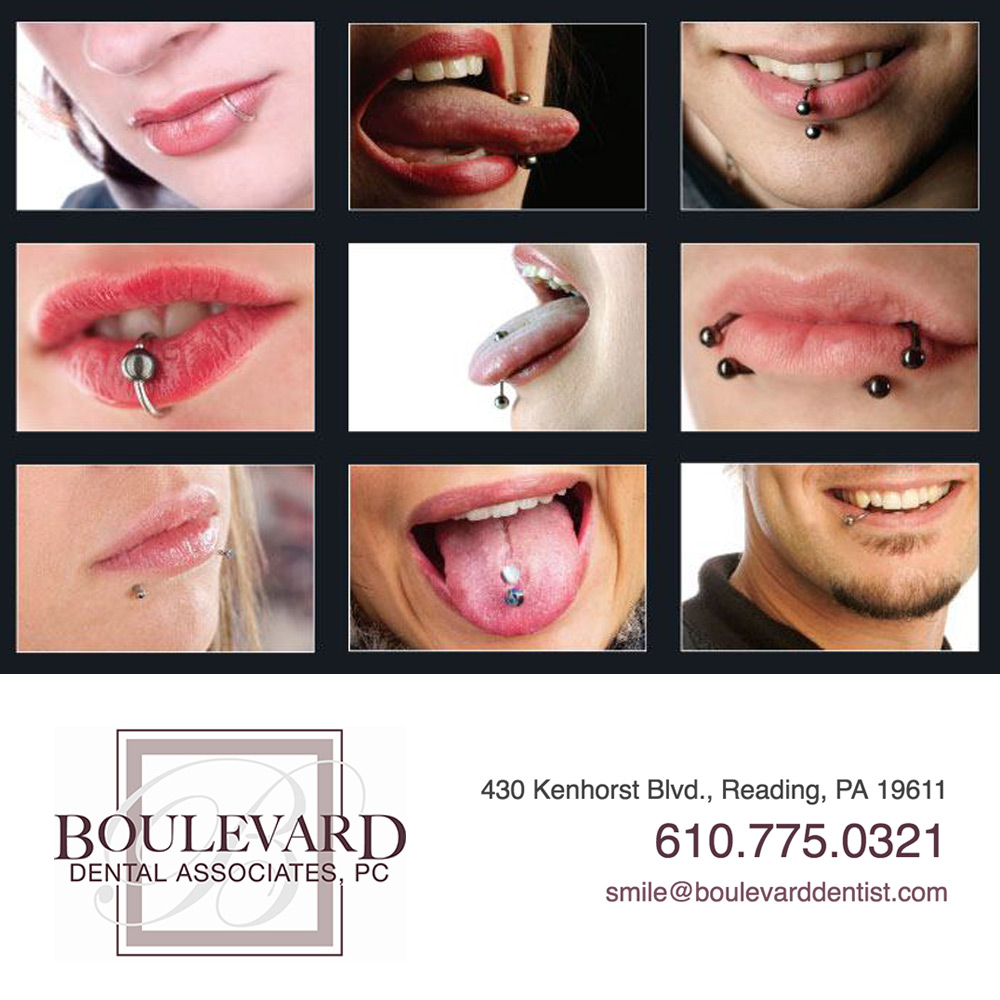
Piercing and tongue splitting are forms of body art and self-expression in today’s society. However, mouth piercings, which involve the tongue, lips, cheeks, or a combination of sites, and tongue splitting can be associated with a number of adverse effects.
The American Dental Association (ADA), in their online statement on intraoral/perioral piercing and tongue splitting, describes many of the potential negative effects of piercing and tongue splitting. As with any puncture wound or incision, piercing and tongue splitting can cause pain, swelling and infection. Possible adverse outcomes secondary to mouth piercing include an increased amount of saliva, gum injury or recession, damage to teeth, interference with speech and chewing, scar-tissue formation and the development of metal hypersensitivities. Because of the tongue’s vascular nature, prolonged bleeding can result if vessels are punctured during the piercing procedure. In addition, wearing tongue jewelry may chip or fracture teeth and can significantly increase the potential for infection. There have also been reports of jewelry becoming embedded in surrounding tissue, requiring surgical removal.
The ADA statement also explains that infection from oral piercing can be serious. Piercing has been identified as a possible vector for bloodborne hepatitis (hepatitis B, C, D and G) transmission. In addition, cases of heart infections have been linked to oral piercing. Such infections may require the use of antibiotics or may require surgery.
Due to the potential for numerous negative effects, the ADA states that they oppose the practice of intraoral/perioral piercing and tongue splitting. We here at Boulevard Dental Associates strongly urge you to take this recommendation seriously. We want you to be healthy in every way!
Source: ADA – American Dental Association
http://www.ada.org/en/member-center/oral-health-topics/oral-piercing
